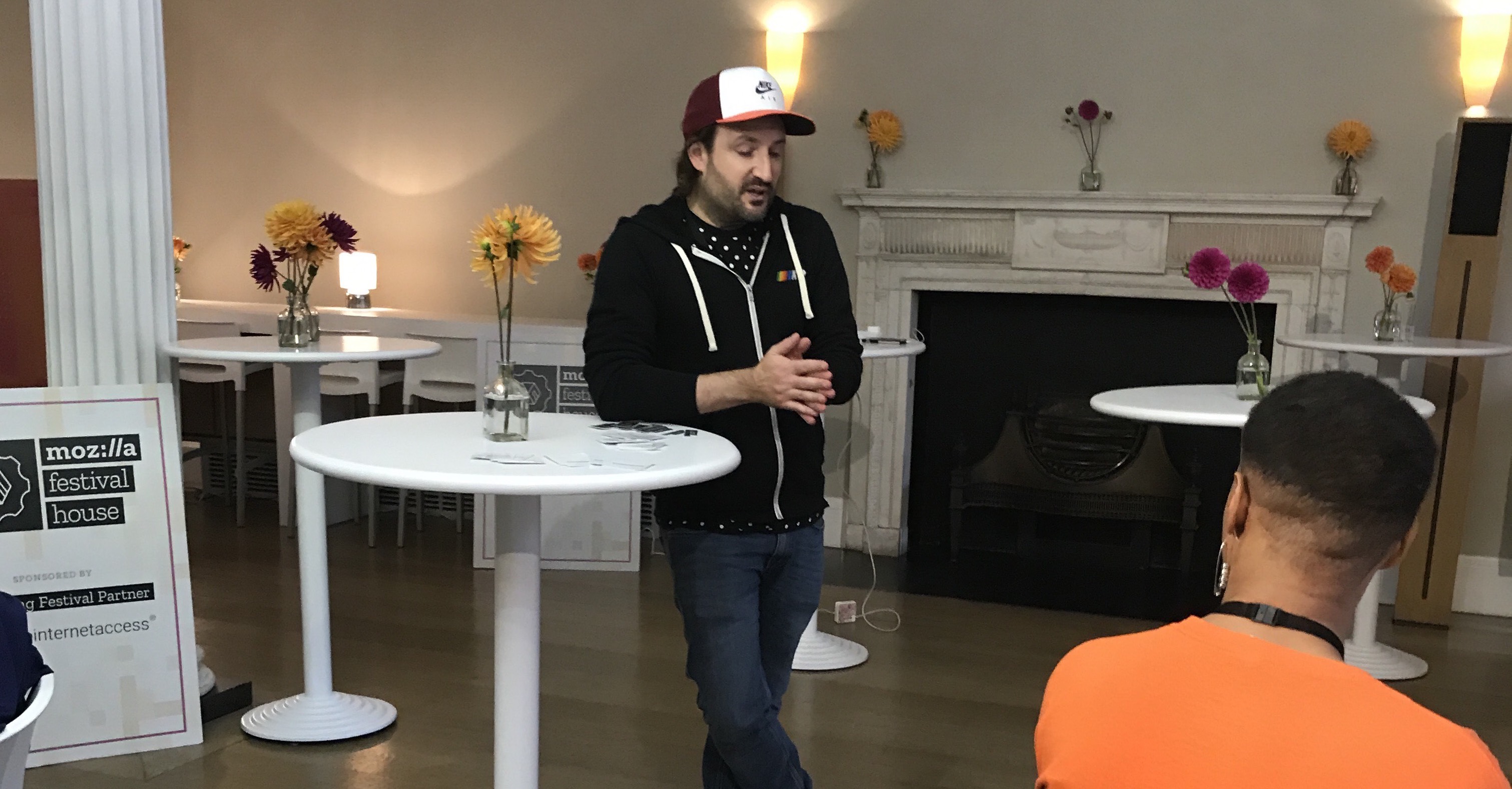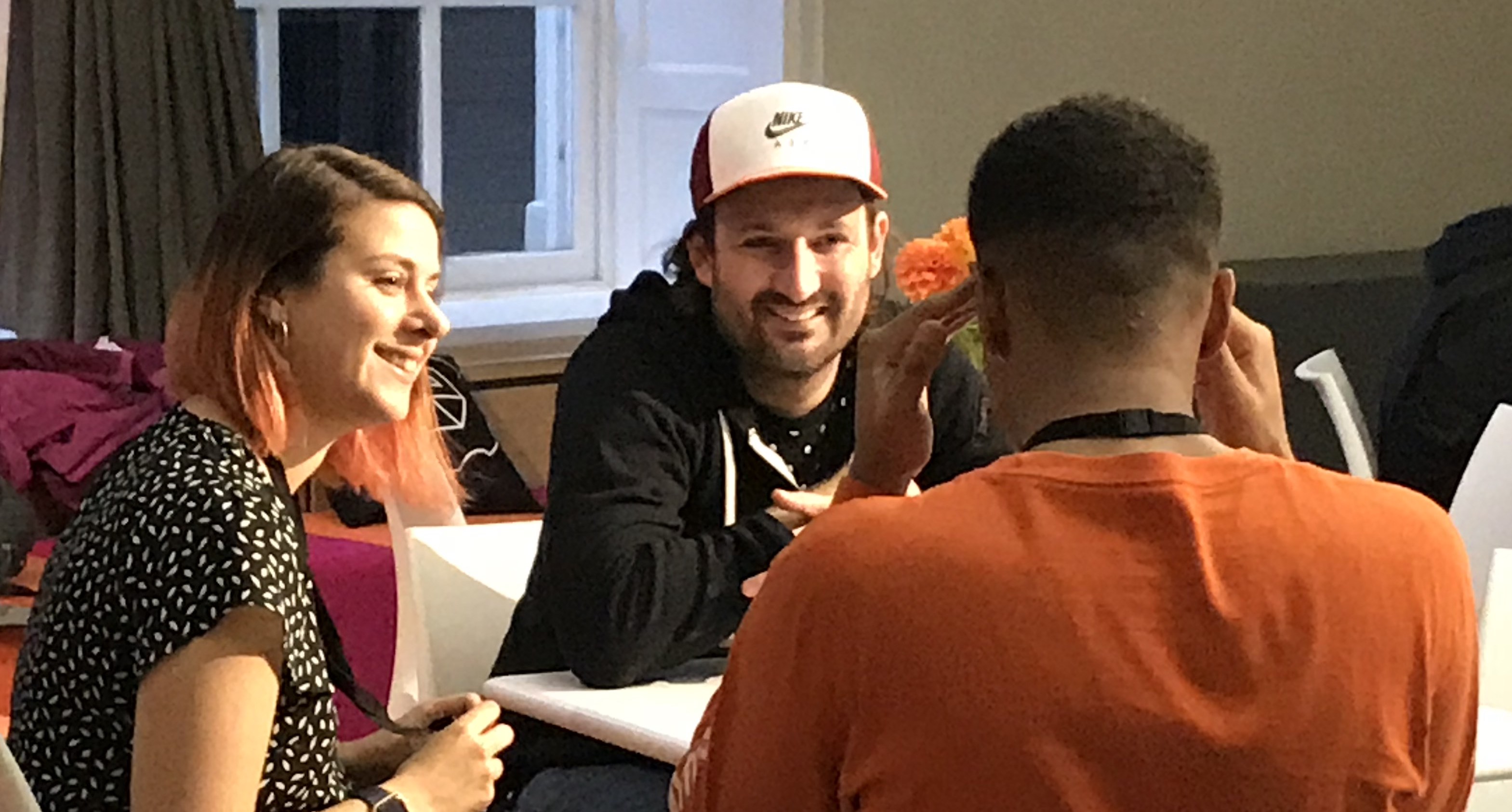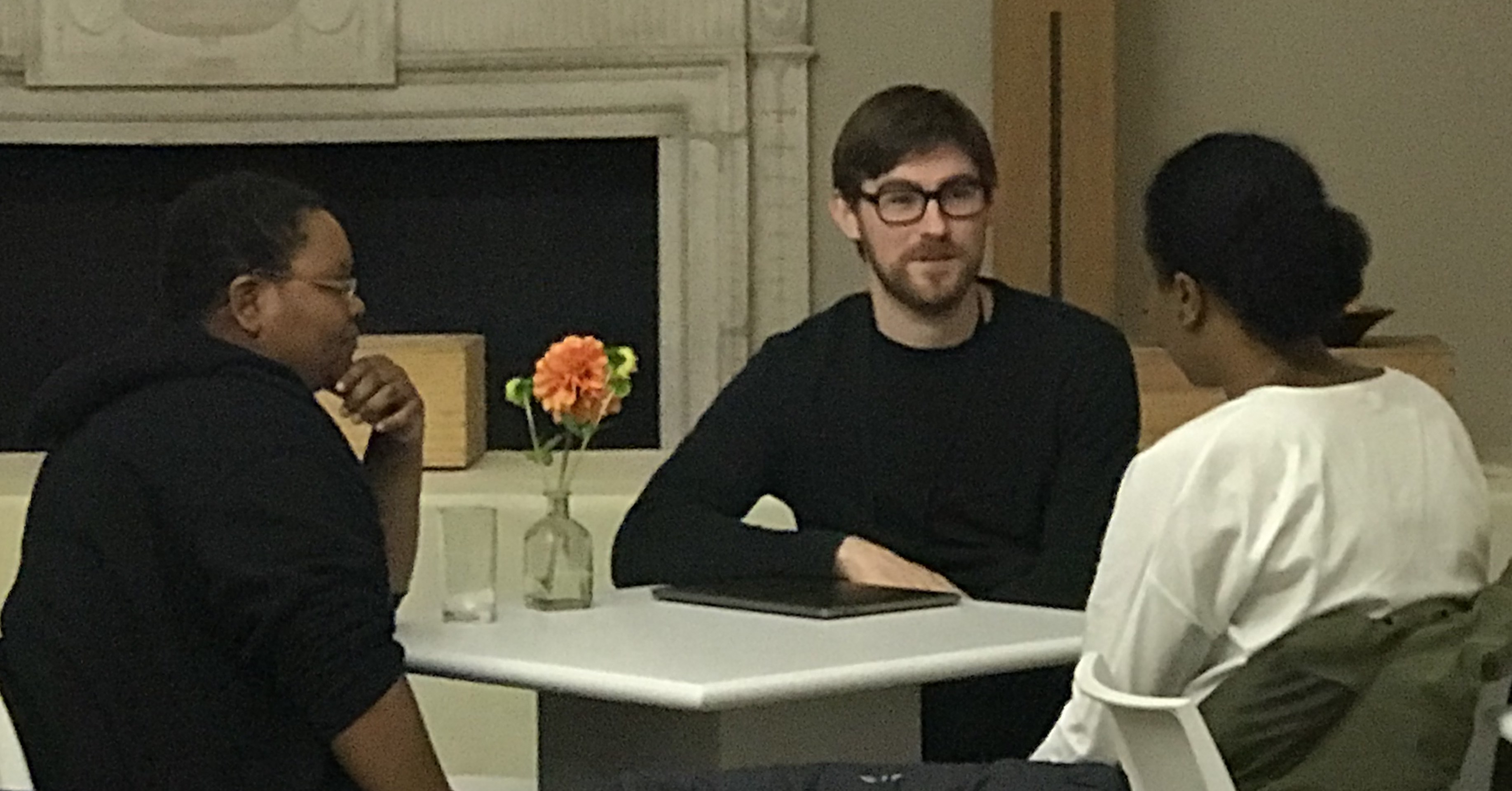
Facing Some Hard Truths After Attending #causeascene
A couple of weeks ago, myself, Paul and Doc were honoured to attend the #causeascene careers fair in London. Organised by Kim Crayton, the careers fair and accompanying conference provide safe spaces for marginalised people in tech to tell their stories.
If you recognise Kim’s name, that may be because she spoke at Admission last month. Her mission, as she explains it, is “the strategic disruption of the status quo in tech organizations, communities and events”. Her job is to make white people feel uncomfortable because it is only when we get comfortable with being uncomfortable that we can have the conversations that will bring about real change.
Tito was invited as a careers coach. We’re not hiring at the moment, having exploded from three to ten employees within a couple of years, but we were more than happy to share our experience of working in tech, building a product, and remote working.

Image description: Doc Parsons, co-founder of Tito presenting at the #causeascene job fair in London.
We met Jay*, a university student in the final year of a computing course and totally unsure of what path to take afterwards. An initial lack of confidence dissipated when they opened up about their dissertation project on wearable music technology—it became clear that Jay has a ton of passion and technical skill to bring to the right role, and it was a delight to hear their story.
Maya* wanted advice on breaking into the tech industry. She has a ton of abstract experience in the form of having read extensively on her subject of interest, and clearly knows way more than the basics, but lacks practical experience and can’t find a way to switch from learning to doing. Paul suggested some front-end technologies she may want to explore as a starting point, to gain demonstrable practical experience.
Then we spoke to Alex*, who has struggled to find a permanent job since completing a coding bootcamp several years ago, and attributes some of this difficulty to having ADHD. Technical tests for developer roles aren’t set up for people like Alex, because they ask you to spend 2-3 hours on a task using a specific tool or technology, but these tools vary from company to company. So Alex ends up spending several days trying to learn a new framework in order to complete the test, only for the next test to be about something completely different. While we don’t do technical tests ourselves when we hire engineers, we could see how flawed that process is and how it can lead to intense frustration for applicants.
This is an example of how one size really does not fit all, and that a cookie-cutter approach will only result in a lack of diversity.

Image Description: Vicky and Doc speaking with an attendee at the #causeascene job fair.
The group was small enough that we were able to end the session with a frank and open discussion between all participants. People shared their experiences and asked questions, and it did indeed feel like a safe space. Safe enough to make some nerve-racking admissions.
The truth is, attending the careers fair highlighted some uncomfortable truths we’re having to face as a company—things that have been bothering us from early on. We’ve grown from a company of two white men to a company of ten white people. A mix of women and men, gay and straight, young and less young, but still not truly representative of the people we serve around the world.
That’s a problem. To make our product as good as it can possibly be, we need multiple perspectives. It’s that simple. And we can’t deny the fact that our similarities of experience due to our shared privilege mean we’re always going to see things through a similar lens.
We’ve taken some well-intentioned steps to try and reach more candidates of colour, as a start. Dublin is a homogenous city (95% white as of the 2011 census), so we’ve opened Tito up to remote working. We’ve reviewed the wording of our job adverts with an external consultant who focuses on inclusion to make sure our unconscious bias isn’t dissuading people from applying. We’ve invested in outreach to groups working with under-represented people in tech. But we haven’t done enough, and that’s obvious when you take a look at how homogenous our company appears.
Kim says “good intention is nothing without an effective strategy”, and she’s right. She also knows that improving our tech organisations and communities is a challenging and often daunting undertaking. It’s easy to feel discouraged when your efforts don’t get the results you’re aiming for. But she gently but firmly pushes back in face of defensiveness or excuses, while being gracious and insisting people don’t apologise, but learn from it and do better next time.

Image Description: Paul Cambell, co-founder of Tito, speaking with #causeascene job fair attendees.
We attended #causeascene to share our expertise, but we left with a myriad of lessons and a lot to think about. We know we need to make this a priority, and we commit to doing better when the time comes around to hiring for new roles. We’ll be working on putting an effective strategy in place, and we’re grateful to people like Kim for creating the spaces where we can ask questions, hear others’ stories, and take the time to look inwards so that we can put what we’ve learnt into practice.
Also in attendance at the careers fair was digital agency DXW, who are clearly very committed to hiring a diverse workforce, and shared some of their approaches including their open source playbook. In addition to a touring conference and careers fair, the #causeascene movement takes the form of a newsletter, podcast and online store. Follow @KimCrayton1 on Twitter for updates.